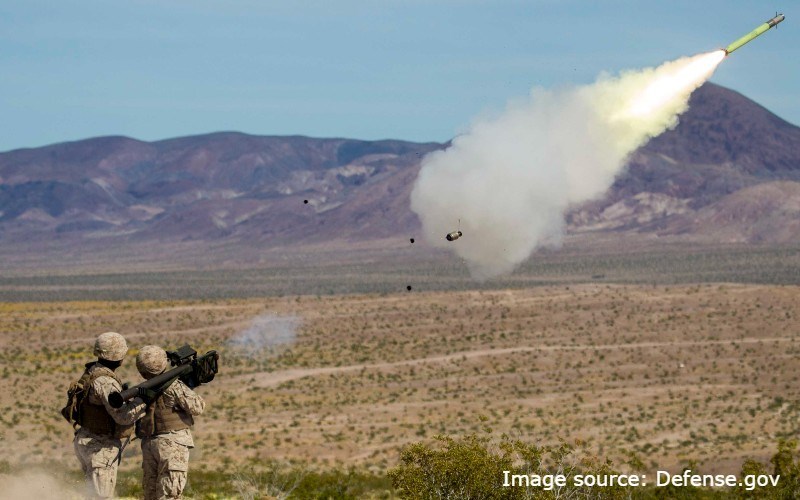"It would take years to replace the sophisticated equipment lost in such a war," explains Dr. Stephen Bryen, a senior fellow at the Center for Security Policy (CSP). "What the U.S. is learning from [the war between Russian and Ukraine] very clearly is that the expendables – like high-tech Stinger missiles [pictured above] – can be depleted very quickly. And [that conflict] is not even a major war," he emphasizes.
While Bryen acknowledges it's questionable whether Russia can sustain itself, he notes "they do have huge reserves of equipment." And while Russia's weaponry isn't as sophisticated as the that of the United States, he says, Moscow has relied on "quantity over quality" through the years.

Should a war ever spread throughout Eastern Europe and into Central Europe, Bryen argues that U.S. involvement would be hampered by the inability to sustain its sophisticated weaponry. In support of his argument, the former senior staff director of the U.S. Senate Foreign Relations Committee points to the conflict in Afghanistan, which some describe as America's longest war and he describes as actually "a low-level war."
"The enemy was an insurgent force at most; it wasn't a major army," he points out. "Our equipment took quite a beating – and most of it wasn't replaced."
China best prepared
According to Bryen, China may be the greater concern for any large-scale scenario.
"China is in the best position [to sustain itself over the course of a long-term war]," he tells American Family News – because not only has the Communist regime "grown a very large industrial base, they have shown that they can produce weapons very quickly compared to the cycle in the United States or Western Europe."
Ultimately, the CSP senior fellow says, the Chinese regime wants to push the United States out of Asia. And if the U.S. isn't prepared for a long-term war, he warns, "we may end up being pushed back all the way to Alaska and Hawaii."
Bryen argues the U.S. needs to maintain the position it has had since World War II. "[And that is] being strong enough and capable enough to defend ourselves and our allies from a large-scale, long-term attack," he concludes.







